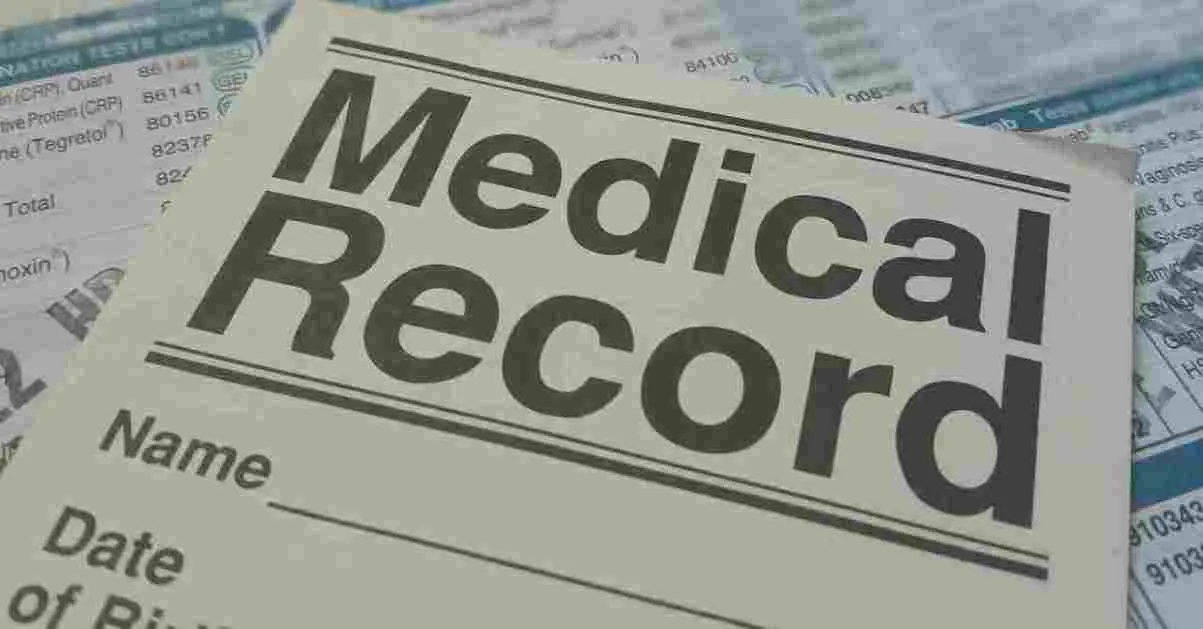
Compile a Personal Health Record
Personal Health Record
A Personal Health Record contains copies of all your Medical Records compiled and maintained by each of your healthcare providers (your family doctor, local ER etc). Your Personal Health Record is compiled and maintained by you and can be used to share information about your health with other healthcare professionals or family members.
Maintaining an up-to-date and easily accessible Personal Health Record enables you to play a more active role in your healthcare.
Reasons to keep a personal medical record
- As x-rays can cause cancer, keeping a copy of these images is critical in preventing you having to undergo further x-rays in the event that the originals go missing in the hospital.
- Each doctor, healthcare worker or medical facility involved in your care has a separate medical record for you. Your Personal Health Record combines these separate files into one complete record.
- Your Personal Health Record can save you a lot of time and effort if you decide to go to a new doctor or facility or if a record gets damaged or lost.
- Being able to study all your medical records at home will help you feel more in control of your health care.
- Your Personal Health Record can help you better manage health insurance claims, taxes, and other legal matters, such as disability insurance and life insurance claims.
- If your cancer comes back, details about your original diagnosis and treatment can help your doctor design a new treatment plan.
- An accurate Personal Health Record is important for survivors of childhood cancer. It provides important treatment details that children may not remember or know about later in their lives.
Personal Health Record could include:
As x-rays can cause cancer, keeping a copy of these images is critical in preventing you having to undergo further x-rays in the event that the originals go missing in the hospital.
- Identification Sheet – A form that lists your name, address, telephone number, insurance details, blood type and the name and address of your family doctor.
- Consent and Authorization Forms – Copies of consents for hospital admission, treatment, surgery, and release of information.
- Medical History – A list of illnesses and surgeries you have had, and any significant family history of disease
- Medication Record – A list of all medications you are currently taking and the condition they are meant to treat.
- A list of medications you took in the past.
- Progress Notes – Documents compiled by the doctors, nurses, therapists, and other healthcare workers caring for you that record their observations, your response to treatment, and plans for ongoing treatment.
- Physician’s Orders – Your physician’s directions to other members of the healthcare team regarding your medications, tests, diets, and treatments.
- Consultant referrals – Notes about your condition made by all consultant physicians to whom you were referred by your doctor.
- Other healthcare providers – Notes from healthcare providers such as home care nurse, social workers, physiotherapists or physical therapists.*
- Imaging and X-ray Reports – Describe the findings of x-rays, mammograms, ultrasounds, and scans.
- Lab Reports – Results of tests such as urinalysis, lipid levels, and complete blood count (a blood test used to evaluate your overall health and detect a wide range of disorders).
- Immunization Record – A record of immunizations against diseases such as polio, measles, mumps, rubella, and the flu.
- Operative Report – A document that describes surgery performed and gives the names of surgeons and assistants.
- Pathology Report – Describes tissue removed during an operation and the diagnosis based on examination of that tissue
- Intensive Care Unit – Details of any treatments or observations made during your stay in an intensive care unit.
- Discharge Summary – A summary of a hospital stay, including the reason for admission, significant findings from tests, procedures performed, therapies provided, response to treatment, condition at discharge, and instructions for medications, activity, diet, and follow-up care.
*In Ireland, physical therapists have no training in medical oncology, whereas Physiotherapists do.
Personal Health Record saves woman’s life
A woman arrived at an emergency room in Wisconsin complaining of chest discomfort, and soon slipped into a coma. The woman was a single mother with no family members nearby
Thanks to the detailed accounts of her health she had posted to her Facebook, and her son’s mention of the account, doctors were able to tap into a wealth of vital knowledge on her health. She had posted her medications, symptoms, hospitalizations and conditions for months. She had dates, times and descriptions of how she felt and what was occurring with her body. As the article points out, this personal chronicle of her health was far more complete than her medical records (wherever they were) could have possibly been. She made a full recovery.
Page updated 2024
